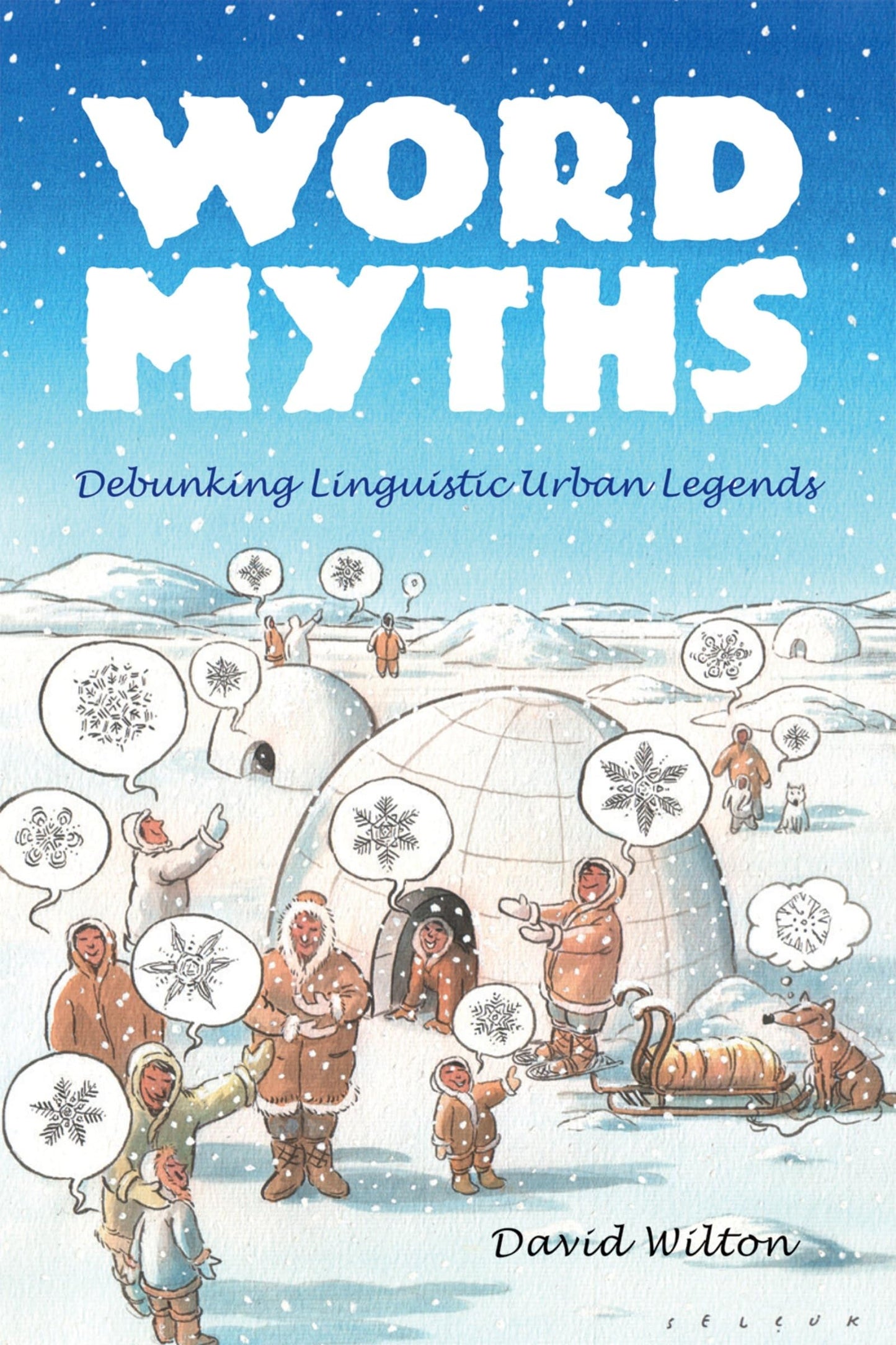Oxford University Press
Word Myths: Debunking Linguistic Urban Legends
Regular price
$7.95 USD
Regular price
Sale price
$7.95 USD
Unit price
per
Couldn't load pickup availability
Title: Word Myths: Debunking Linguistic Urban Legends
Author: David Wilton
ISBN: 9780195375572
Publisher: Oxford University Press
Published: 2008
Binding: Paperback
Language: English
Condition: Used: Very Good
Clean, unmarked copy with some edge wear. Good binding. Dust jacket included if issued with one. We ship in recyclable American-made mailers. 100% money-back guarantee on all orders.
Anthropology 1649403
Publisher Description:
Do you believe that Ring Around the Rosie refers to the Black Death? Or that Eskimos have 50 (or 500) words for "snow"? Or that "Posh" is an acronym for "Port Out, Starboard Home"? If so, you badly need this book. In Word Myths, David Wilton debunks some of the most spectacularly wrong word histories in common usage, giving us the real stories behind many linguistic urban legends.
Readers will discover the true history behind such popular words and expressions such as "rule of thumb," "the whole nine yards," "hot dog," "raining cats and dogs," "chew the fat," "AWOL," "under the weather," "in like Flynn," "Dixie," "son of a gun," "tinker's damn," and many more. We learn that SOS was not originally an acronym for "Save Our Ship" or "Save Our Souls," but was chosen because the morse code signal (3 dots, 3 dashes, 3 dots) was easy to send and recognize. Also, "let the cat out of the bag" does not refer to the whip (the "cat") used to punish sailors aboard ship. The term "upset" (to defeat unexpectedly) does not date from the horse race when the heavily favored Man O' War was beaten by a nag named Upset (Upset was the only horse ever to defeat Man O' War, but the word predates the race by half a century). And Thomas Crapper did not invent the flush toilet, nor do the words "crap" or "crapper" derive from his name.
As Wilton quashes these word myths, he offers us the best of both worlds: not only do we learn the many wrong stories behind these words, we also learn why and how they were created--and what the real story is. "Think 'hot dog' was coined by a New York baseball vendor, or that a certain vulgarity originated as an acronym? Then you need to read this book, which shows that some of the best etymological stories are just tall tales." --Chicago Tribune (10 Best Books About Language, 2004)
"Most everything you know about word and phrase origins is likely to be wrong, and David Wilton proves it with a light touch and a wealth of fascinating case histories. Absolutely everyone with an interest in language will love this book." --J.E. Lighter, Editor, Historical Dictionary of American Slang
Author: David Wilton
ISBN: 9780195375572
Publisher: Oxford University Press
Published: 2008
Binding: Paperback
Language: English
Condition: Used: Very Good
Clean, unmarked copy with some edge wear. Good binding. Dust jacket included if issued with one. We ship in recyclable American-made mailers. 100% money-back guarantee on all orders.
Anthropology 1649403
Publisher Description:
Do you believe that Ring Around the Rosie refers to the Black Death? Or that Eskimos have 50 (or 500) words for "snow"? Or that "Posh" is an acronym for "Port Out, Starboard Home"? If so, you badly need this book. In Word Myths, David Wilton debunks some of the most spectacularly wrong word histories in common usage, giving us the real stories behind many linguistic urban legends.
Readers will discover the true history behind such popular words and expressions such as "rule of thumb," "the whole nine yards," "hot dog," "raining cats and dogs," "chew the fat," "AWOL," "under the weather," "in like Flynn," "Dixie," "son of a gun," "tinker's damn," and many more. We learn that SOS was not originally an acronym for "Save Our Ship" or "Save Our Souls," but was chosen because the morse code signal (3 dots, 3 dashes, 3 dots) was easy to send and recognize. Also, "let the cat out of the bag" does not refer to the whip (the "cat") used to punish sailors aboard ship. The term "upset" (to defeat unexpectedly) does not date from the horse race when the heavily favored Man O' War was beaten by a nag named Upset (Upset was the only horse ever to defeat Man O' War, but the word predates the race by half a century). And Thomas Crapper did not invent the flush toilet, nor do the words "crap" or "crapper" derive from his name.
As Wilton quashes these word myths, he offers us the best of both worlds: not only do we learn the many wrong stories behind these words, we also learn why and how they were created--and what the real story is. "Think 'hot dog' was coined by a New York baseball vendor, or that a certain vulgarity originated as an acronym? Then you need to read this book, which shows that some of the best etymological stories are just tall tales." --Chicago Tribune (10 Best Books About Language, 2004)
"Most everything you know about word and phrase origins is likely to be wrong, and David Wilton proves it with a light touch and a wealth of fascinating case histories. Absolutely everyone with an interest in language will love this book." --J.E. Lighter, Editor, Historical Dictionary of American Slang
Share

